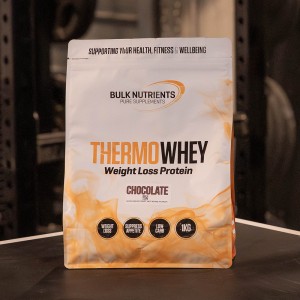The Two Things Every Weight Loss Diet Has in Common
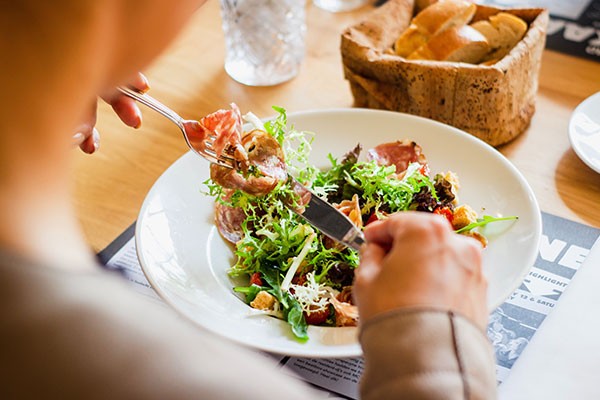
Most diets are the same
- The Paleo diet.
- The Ketogenic diet.
- Intermittent fasting.
- The Carnivore diet.
You’ve heard of all of them.
Some of them aren’t all that different, but there are two things they all have in common:
- ONE: They prioritise your protein intake
- TWO: They prioritise a calorie deficit
Getting enough protein
You want to get anywhere from 1.5 - 3 grams of protein per kilogram of body weight per day.
This is if you’re exercising regularly. If you’re more sedentary, 1 gram per day might suffice. If you’re getting hungry still, increase it.
Most of us will be fine with 1.5 grams per kilogram of bodyweight per day. However, some of us exercising a lot will want to push it up to 2 grams.
And those with very low body fat – less than 10% for men and less than 20% for women – can have as much as 3 grams per day for muscle maintenance and satiety.
But regardless of where you fit in the above, all of these diets aim to give you enough protein as per the above guidelines.
Why? For five reasons why protein is so important in a diet:
- Protein keeps us full better than carbs and fat, so we're less likely to overeat (this is a huge reason).
- Protein is low in calories (just 4 calories per gram)
- Our bodies burn about 30% of all calories from protein just digesting it
- Protein gives us great dietary satisfaction and helps maintain dietary progress
- When weight loss subjects are overfed by 800 calories from protein, they still lose weight! This is due to thermogenesis; the heat generated by the body to digest it which burns so many calories (related to point 3)
So, you can see that a weight loss diet is simply not one without protein. Which they all have in common.
And while we’re at it, I’ll point out that all of the aforementioned diets welcome protein sources such as chicken, beef, eggs, etc – none of them are off-limits.
Another reason they’re similar.
Great. Now you’re across protein. Let’s move on to point number two.
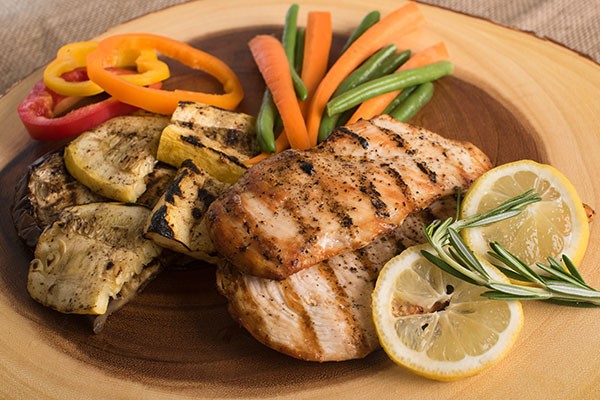
Creating a calorie deficit
I don't care if you’re superman, a genie, or the Queen – you need a calorie deficit to lose weight!
It’s what governs fat loss.
So, you can create your calorie deficit with diet alone, diet AND exercise, or just exercise, whichever you prefer.
But there’s no getting around this fact.
Now, this might sound like common sense, but it isn’t.
For example, when fasting first hit the scene, people were saying how you could “eat whatever you wanted in your feeding window” and not gain weight.
They had misinterpreted that it was pretty hard to eat in a calorie surplus – more than the calories you burn daily – by fasting for 12 hours.
All sorts of claims were thrown around: you could hack the body's system of energy balance.
Nope.
And with the ketogenic diet, many thought because you’re not eating carbs, you’re not “spiking insulin which apparently leads to fat gains.”
But this just isn’t supported by science, and has been disproved many times:
- When protein was matched in this review of 32 studies, low carbohydrate diets or ketogenic diets provided no difference in weight loss
- When subjects follow a diet made up of 77% carbohydrates, they still lose weight.
- When subjects go on either high-fat, low-carb diets or high-carb low-fat diets, the fat loss is the same.
So, the idea that "insulin is bad for fat gains" is totally false.
And the next time you hear this incorrect and disproven hypothesis being touted, you might like to remind people that whey protein spikes insulin too, and is actually more insulinogenic than white bread!
There’s no magic at all
The Paleo diet, Carnivore diet, and Ketogenic diet say you cannot eat certain foods, like starchy carbohydrates or sugar, for example.
So, when you cut these foods out (anything like pizza, chocolate, bread, rice, etc) it removes a lot of what you’re eating anyway.
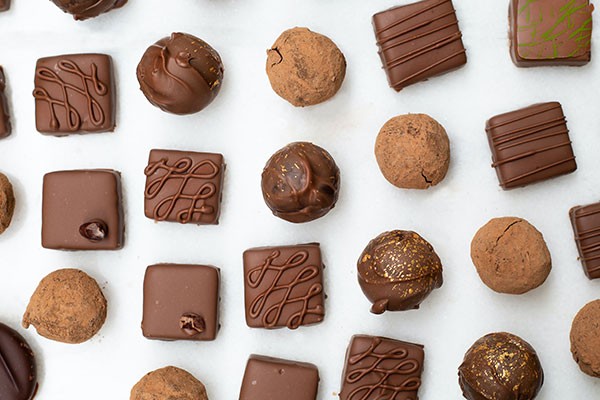
And when you remove all these foods, that you can enjoy as part of a weight-loss diet for better long-term weight loss and dietary adherence – there’s a high chance you’re going to enter a calorie deficit.
And these diets want you to think there’s something magical about them. So, you keep doing it. And tell your friends.
But you’re cutting the foods you (potentially) love at what cost? It makes you miserable, and most people don’t sustain these diets.
So, they’re back to square one. What’s the best diet for weight loss?
The one you can stick to.
So, if it’s any of these, then great, ignore everything I’ve said!
But if you’re finding it difficult to adhere to these, you’re not the only one.
What should you do?
Well, get your protein right as per the above recommendations, and make up your fat and carbohydrate calories as you wish, with the foods you wish (within reason), and you’ll lose weight with ease.
The bottom line on a successful diet
Most diets are set up the same: high protein and a calorie deficit. And some ask you to cut certain foods out which makes you feel like the diets are magical, but all they're doing is creating a calorie deficit by default.
Cutting out certain foods can just make dieting harder, and a flexible approach is better for long-term fat loss and dietary adherence.
But remember the best diet for fat loss is the one you can stick to!
References:
- Aragon, A.A., Schoenfeld, B.J., Wildman, R. et al. International society of sports nutrition position stand: diets and body composition. J Int Soc Sports Nutr 14, 16 (2017). https://doi.org/10.1186/s12970-017-0174-y
- Claessens M, Calame W, Siemensma AD, van Baak MA, Saris WH. The effect of different protein hydrolysate/carbohydrate mixtures on postprandial glucagon and insulin responses in healthy subjects. Eur J Clin Nutr. 2009 Jan;63(1):48-56. Epub 2007 Sep 12.
- Hall K, Guo J. Obesity Energetics: Body Weight Regulation and the Effects of Diet Composition. Gastroenterology. Gastroenterology. 2017;152(7):1718-27.
- Hector AJ, Phillips SM. Protein Recommendations for Weight Loss in Elite Athletes: A Focus on Body Composition and Performance. Int J Sport NutrExercMetab. 2018 Mar 1;28(2):170-177. doi: 10.1123/ijsnem.2017-0273. Epub 2018 Feb 19. PMID: 29182451.
- Masood W, Annamaraju P, Uppaluri KR. Ketogenic Diet. [Updated 2021 Jun 11]. In: StatPearls [Internet]. Treasure Island (FL): StatPearls Publishing; 2021 Jan-. Available from: https://www.ncbi.nlm.nih.gov/books/NBK499830/
- Sacks FM, Bray GA, Carey VJ, Smith SR, Ryan DH, Anton SD, McManus K, Champagne CM, Bishop LM, Laranjo N, Leboff MS, Rood JC, de Jonge L, Greenway FL, Loria CM, Obarzanek E, Williamson DA. Comparison of weight-loss diets with different compositions of fat, protein, and carbohydrates. N Engl J Med. 2009 Feb 26;360(9):859-73. doi: 10.1056/NEJMoa0804748. PMID: 19246357; PMCID: PMC2763382.
- Salehi A, Gunnerud U, Muhammed SJ, Ostman E, Holst JJ, Björck I, Rorsman P. The insulinogenic effect of whey protein is partially mediated by a direct effect of amino acids and GIP on beta-cells. NutrMetab (Lond). 2012 May 30;9(1):48.
- Shintani TT, Beckham S, Brown AC, O'Connor HK. The Hawaii Diet: ad libitum high carbohydrate, low fat multi-cultural diet for the reduction of chronic disease risk factors: obesity, hypertension, hypercholesterolemia, and hyperglycemia. Hawaii Med J. 2001 Mar;60(3):69-73. PMID: 11320614.
- Smith CF, Williamson DA, Bray GA, Ryan DH. Flexible vs. Rigid dieting strategies: relationship with adverse behavioral outcomes. Appetite. 1999 Jun;32(3):295-305. doi: 10.1006/appe.1998.0204. PMID: 10336790.
- Strasser B, Spreitzer A, Haber P. Fat loss depends on energy deficit only, independently of the method for weight loss. Ann NutrMetab. 2007;51(5):428-32. doi: 10.1159/000111162. Epub 2007 Nov 20. PMID: 18025815.
- Wilcox G. Insulin and insulin resistance. Clin Biochem Rev. 2005;26(2):19-39.
Related Blogs

How Effective Are Diet Apps for Weight Loss?
Posted by Bulk Nutrients
Estimated reading time: 6 minutes
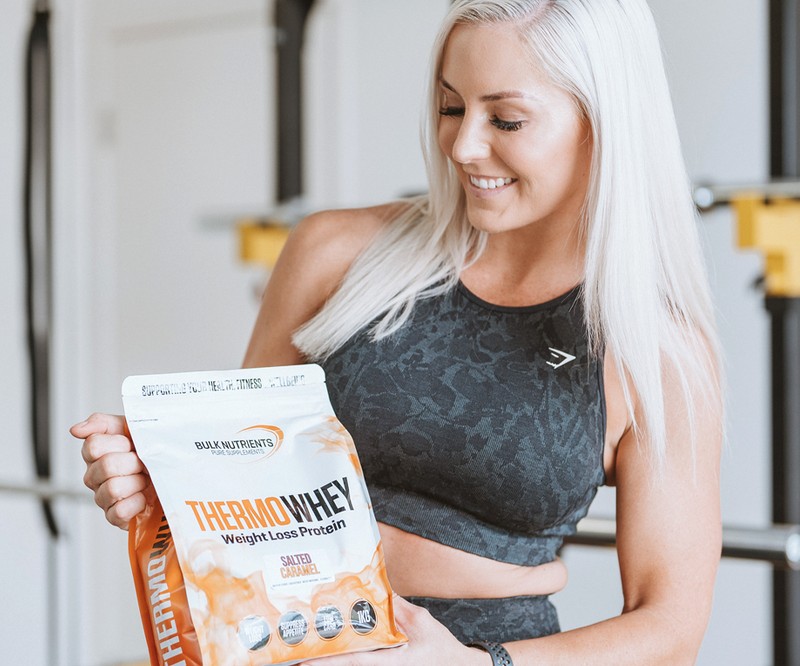
Choosing a Protein Powder for Weight Loss
Posted by Bulk Nutrients
Estimated reading time: 5 minutes

Popular Diets Explained
Posted by Nicole Frain
Estimated reading time: 6 minutes
